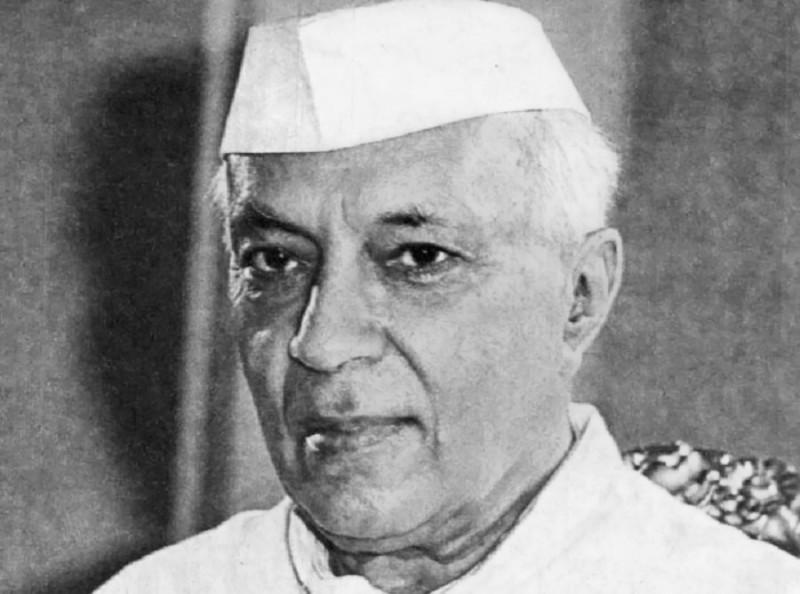
“The belittling of Pandit Nehru is odd, because the standing of the current Prime Minister is not validated by writing out a previous Prime Minister from the annals of history. The future will judge both leaders on their own merit, their success or their failure in managing a complex and plural society, their credentials as democrats, and their political, economic, and strategic visions. Both have a place in modern India. What that place is, will be decided by history”, says the author.
Unremembering Jawaharlal Nehru is to forget that there is an alternative to narrow nationalism
Otherwise ordinary ‘first’ speech given by India’s fourteenth President, Ram Nath Kovind, would have gone unremarked, except for one notable omission. The name of Pandit Jawaharlal Nehru, arguably the foremost leader of the freedom struggle, and India’s first Prime Minister, was spectacularly missing from the inventory of prominent Indians listed by the President. Though the government under Prime Minister Narendra Modi has gone to extraordinary lengths to eliminate references to the architect of democratic India, we expect the head of state to stand above partisan party politics. There is cause for disappointment.
A few days after Mr. Kovind’s speech, the Bharatiya Janata Party (BJP) published a largish booklet to celebrate the birth centenary of Deen Dayal Upadhyaya. In the section on great leaders of India, ‘Mahapurush’, the names of Nehru as well as Mahatma Gandhi are conspicuous by their absence. Almost 10 lakh senior school students in Uttar Pradesh are forced to study the booklet, appear for an exam, and be rewarded if they perform well. Many of the ‘great men’ listed in the booklet have never taken part in the freedom struggle, and never been jailed for combating colonialism, unlike Nehru and the Mahatma. But their names occupy pride of place in oral and written histories authored by the BJP. Leaders who fought for Independence are simply written off.
The belittling of Pandit Nehru is odd, because the standing of the current Prime Minister is not validated by writing out a previous Prime Minister from the annals of history. The future will judge both leaders on their own merit, their success or their failure in managing a complex and plural society, their credentials as democrats, and their political, economic, and strategic visions. Both have a place in modern India. What that place is, will be decided by history. The current dispensation should take the art of history writing seriously and not reduce it to pamphleteering. History is important for collective self-understanding, because it enables us to understand where we have come from, and how we got from ‘there’ to ‘here’. Without competent histories that allow us to understand our collective past and present, and help us generate visions for the future, entire generations will lose their bearings.
What the philosopher Jürgen Habermas calls the ‘public use of history’ should be, for this reason, subjected to strong evaluations. Since the craft has a bearing on the human condition, we ought to distinguish between histories that inspire a democratic, critical sensibility to contain and challenge authoritarianism, from those that feed appetites for absolute power. History, of course, must narrate tales of tyrants and despots, so that we take care not to repeat the errors of the past. But it must also chronicle tales of the triumph of the human spirit, and inspire us to struggle against totalitarianism and suppression of individual freedom.
For the ruling class, history should be important, because it reminds them that absolute power, often won at the expense of human freedom, does not endure. Unexpected moments arise in the life of a society when its members clamor for change, when existing gods are brought down, and new ones erected in their place, condemned to wait for their own downfall. All of us should be wary of changing tides of fortune.
Fortune, wrote the 16th century political theorist of Florence, Niccolò Machiavelli, is unpredictable and inexplicable. She is an active sharer in man’s making of history, she produces the unforeseen, and she will never be dominated, but will dominate men. That is why Machiavelli advised the Prince of Florence to study history. The public role of history is to remind rulers that fortune is fickle. After all, Nehru, who once led India to freedom, is vilified in his own country by the benighted cyberspace industry. This is short-sighted, because to unremember the man is to forget that there is an alternative to narrow and energy-consuming nationalism.
Despite all attempts, Nehru continues to be remembered by many for his contribution to the institutionalization of democracy, establishing institutions of excellence, and his conviction that poverty and inequality in India cannot be tackled by the market. There is, however, more to a good society: solidarity with struggling people within and outside the country.
Nehru, as one of the most distinguished leaders of Third World solidarity, reached out to the rest of the colonized world, and forged a joint front against colonialism and a reinvented imperialism. He was, by temperament and experience, a cosmopolitan. His frequent visits to Europe, his deep familiarity with the past, and his understanding of the contemporary ideologies of the day, from liberalism to Fabian socialism, to communist internationalism, had convinced him that the future of India was incomplete without the liberation of other colonies.
Nehru’s commitment to the independence of the Third World had been shaped by intellectual journeys through history, as well as participation in a number of international conferences such as the Congress of Oppressed Nationalities in Brussels in 1927. He played a prominent role in the 1955 Bandung Conference, which set the stage for the emergence of a new bloc, and a new ideology in global affairs. Representatives of 29 countries from the global South, comprising well over a billion people, met to consider and debate on how they could help each other to neutralize the harmful effects of colonialism, and bring economic and social well-being to their people. Towering over leaders who had won their political spurs by piloting their countries to independence were Nehru, Kwame Nkrumah, the Prime Minister of Ghana, Gamal Abdel Nasser, the President of Egypt, Zhou Enlai, the Premier of China, and Ho Chi Minh, the Prime Minister of Vietnam. The agenda included every topic over which the colonized and the newly decolonized world had agonized for decades — religion, colonialism, sovereignty, and world peace. The Bandung meeting sparked off reflections on the distinct attractions of non-alignment, and of the strengths that a movement of the non-aligned could acquire in global forums.
Interestingly, if one strand of anti-colonial nationalism focused on the idea and the imaginaries of the nation, the second moved away from processes of closed identity formation towards other ways of being in the world. Nehru’s cosmopolitanism acknowledged that our political identities are forged in and through conversations not only with people who are like us, but people who belong to other cultures, other countries, other societies, and other traditions, but who are like us in many ways.
Contemporary history has not treated this statesman kindly. This is a great pity because today’s generation might know what globalization is, but not what cosmopolitanism is about. Even as our society globalizes at a frenetic pace, it has turned inwards and become claustrophobic. History must remember Nehru, he taught us to look outwards, to express solidarity, and to become, in the process, cosmopolitans. We must remember him because we have lost out on something that is rather important, teaching our children that our imaginations and our energies should be harnessed to the cause of the oppressed over the world, that closed-in societies lead to stagnation if not to certain death, and that such societies circumscribe imaginings and truncate visions. We have, perhaps, become lesser human beings.
(The author is a former Professor of Political Science, Delhi University)
